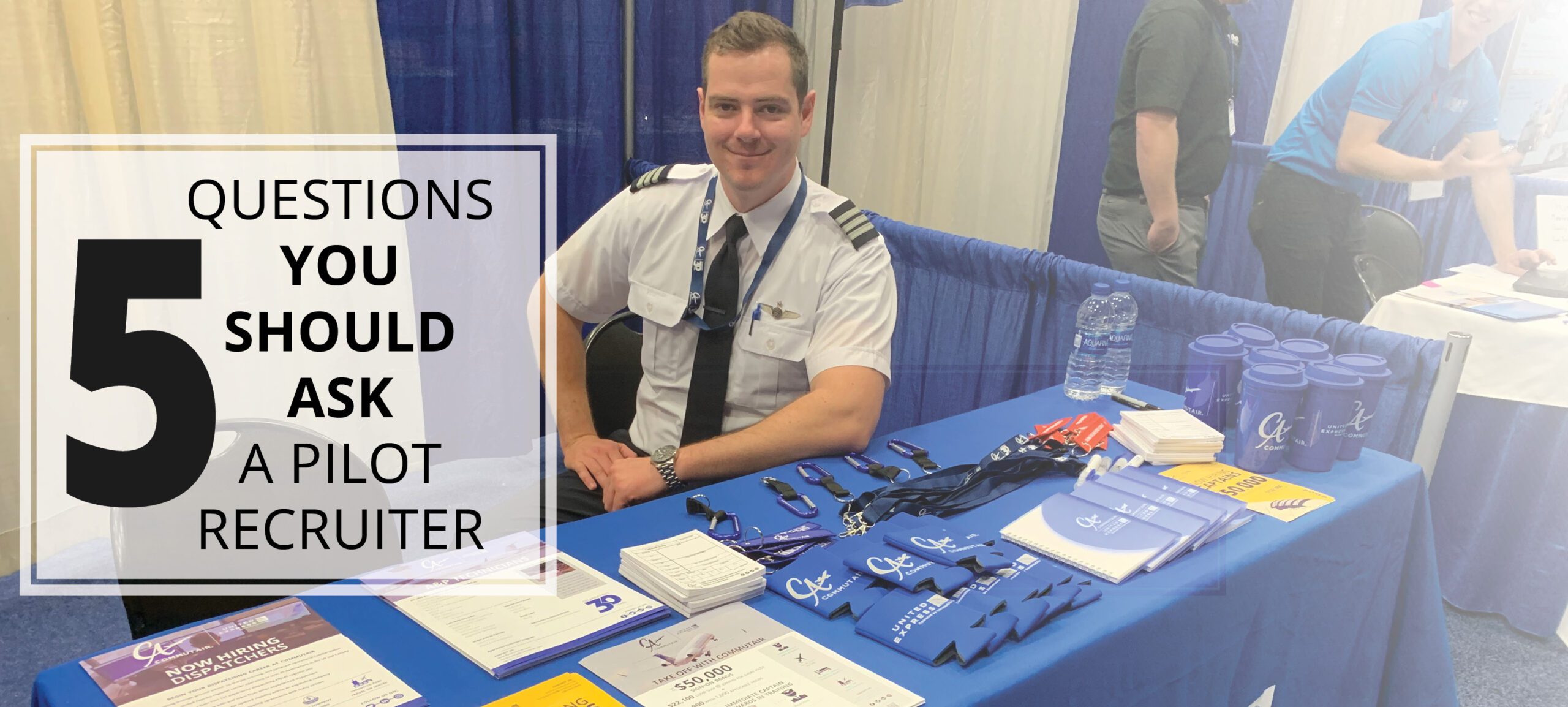



(1) WHAT IS THE SIZE OF YOUR AIRLINE AND HOW DOES IT IMPACT THE CULTURE?
Just like aircraft, airlines come in all sizes, especially at the regional level. Some regional airlines work with a population of more than 5,000 flight-line employees; others, like CommutAir, have fewer than 500. The size of the company can often tell you a lot about the company’s culture.
With larger companies, you may feel like you’re meeting new crews on each flight, so your trips will have a lot of variety. But you may feel like just a number.
Conversely, a smaller airline provides a family-feel, you’ll have familiar faces on each flight, and you’ll get to know each other well.
Only you can decide what you prefer in terms of the interaction with crews and your personal connection to the company.
(2) WHAT KIND OF EXTRA OPPORTUNITIES DOES YOUR AIRLINE OFFER YOUR PILOT GROUP?
Additional experience and a willingness to develop professionally are sought-after qualities in any profession!
CommutAir pilots can become line check pilots, work with the pilot union, join company committees, and participate with other work groups, such as recruiting, safety, and training.
Obviously you became a pilot to fly, but by taking advantage of any additional opportunities offered by an airline, not only will you grow professionally, but you’ll stand out if you hope to fly mainline one day.
(3) AT WHAT POINT CAN I BEGIN WITH THE APPLICATION PROCESS? WHAT ABOUT HIRE?
Application and hiring really differ between airlines. Some airlines provide conditional job offers if you are committed to working for the company, but still need to complete the required flight hour minimums. Having an offer in your back pocket can allow for real peace of mind!
At CommutAir, it’s possible to apply and receive a conditional offer up to an entire six months in advance – meaning you can go through the interview process six months before your projected hire date, and know you’ll have a job as long as you stay in good standing and finish building your hours.
Working for a 121 airline also requires you to hold and qualify for their Airline Transport Pilot (ATP) License. To earn this license, you need to complete scenario-specific hour requirements, and then complete an ATP-CTP training course. Many regional airlines will cover the cost of this course for pilots before they begin the company training program. Ask your pilot recruiter if this is a company-paid benefit.
(4) WHAT DOES THE TRAINING FOOTPRINT LOOK LIKE? WHAT IS PROVIDED?
No matter where you go, no matter what you do, knowing what you are getting yourself into – from the very beginning – is important.
In the aviation industry, you need to know how long you’ll be in training to determine your investment of time and financial resources.
How many flight hours do you need to be hired? How long until you’re holding a line? You’ll need to know how long it takes from basic indoc (ground school – where you’ll learn company policies and procedures), sim time, through the initial operating experience.
During training, airlines like CommutAir pay for single-occupancy housing and also pay trainees at the normal pilot rate. This encourages new pilots to focus on training in a comfortable environment and eliminates unnecessary financial and lodging stress.
(5) WHAT TYPE OF SUPPORT DOES YOUR AIRLINE HAVE?
These days, few regional airlines operate independently. Most receive operational and financial support of some kind.
Some fly for multiple mainline carriers, while others, like CommutAir, fly exclusively for just one. Some are wholly owned by mainline, some are backed privately, and some —like CommutAir— are partially owned by a mainline.
So why does ownership support matter to a potential pilot? Two reasons: potential career trajectory and projected company stability.
Investment from a mainline in a regional typically means some kind of career pathway program is in place. Programs such as these allow a pilot to gain experience and build hours at a regional, in preparation for moving to the mainline affiliated with it.
For example, CommutAir is one of four regionals participating with United Airlines in the Aviate program. Formerly known as the CPP, Aviate is a program that allows anyone from student pilot to current regional pilots to commit to United early, and receive an expedited application with the mainline. Pilots accepted into Aviate are offered additional mentorship opportunities while building time and gaining experience.
Ownership support can also provide insight into the stability of the airline. Those affiliated with a mainline carrier may have additional financial support and more operational resources available to them. As minority owner of CommutAir, United provides aircraft and provides operational support in exchange for CommutAir staffing the flights.
Although these aren’t the ONLY questions you should ask, these get the conversation started and will go a long way to help you understand an airline’s work environment, employee culture, hiring and training process, bonus opportunities, and financial operational strength.
# # #
SR, Pilot Recruiter & Communications Assistant
If you’d like to talk to a pilot recruiter at CommutAir, email us at pilotrecruiting@commutair.com or check out our list of upcoming career fairs. More are always being added, so check back often and follow us on social media.